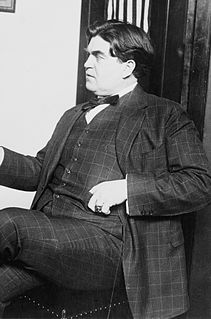A Quote by Frank Abagnale
I'm a true believer that you have a moral obligation to keep your employees honest, and that is why you have controls, so I'm never tempted or put in a position where I could do something to defraud my employer.
Related Quotes
One percent of people will always be honest and never steal," the locksmith said. "Another one percent will always be dishonest and always try to pick your lock and steal your television. And the rest will be honest as long as the conditions are right - but if they are tempted enough, they'll be dishonest too. Locks won't protect you from the thieves, who can get in your house if they really want to. They will only protect you from the mostly honest people who might be tempted to try your door if it had no lock".
Well, I think I'm not a non-believer, and I'm not a believer. But, on the other hand, I couldn't give you a good enough reason why EVP doesn't exist. I don't know enough about it, so how could I say it's not true. Plus, a person's reality is a person's reality so that's your belief system. It's all perception anyway, isn't it.
Modern Australian trade unionism and the unionist that I am doesn't rely on a class war view that somehow that the interests of employees and managers are in two separate spheres and they're irreconcilable. I believe that when people can go to work and be happy, satisfied, engaged, where the employer is getting employees who feel their interests are aligned with the employer, you get productivity. This is the future of Australian workplaces.
Why is it immoral for you to desire, but moral for others to do so? Why is it immoral to produce a value and keep it, but moral to give it away? And if it is not moral for you to keep a value, why is it moral for others to accept it? If you are selfless and virtuous when you give it, are they not selfish and vicious when they take it?
We are now returning to the 18th century empirical approach with the new interest in the evolutionary basis of ethics, with 'experimental' moral philosophy and moral psychology. As a result, we understand better why moral formulas are experienced as ineluctable commands, even if there is no commander and even if the notion of an inescapable obligation is just superstition. So moral philosophy has made huge progress.


































